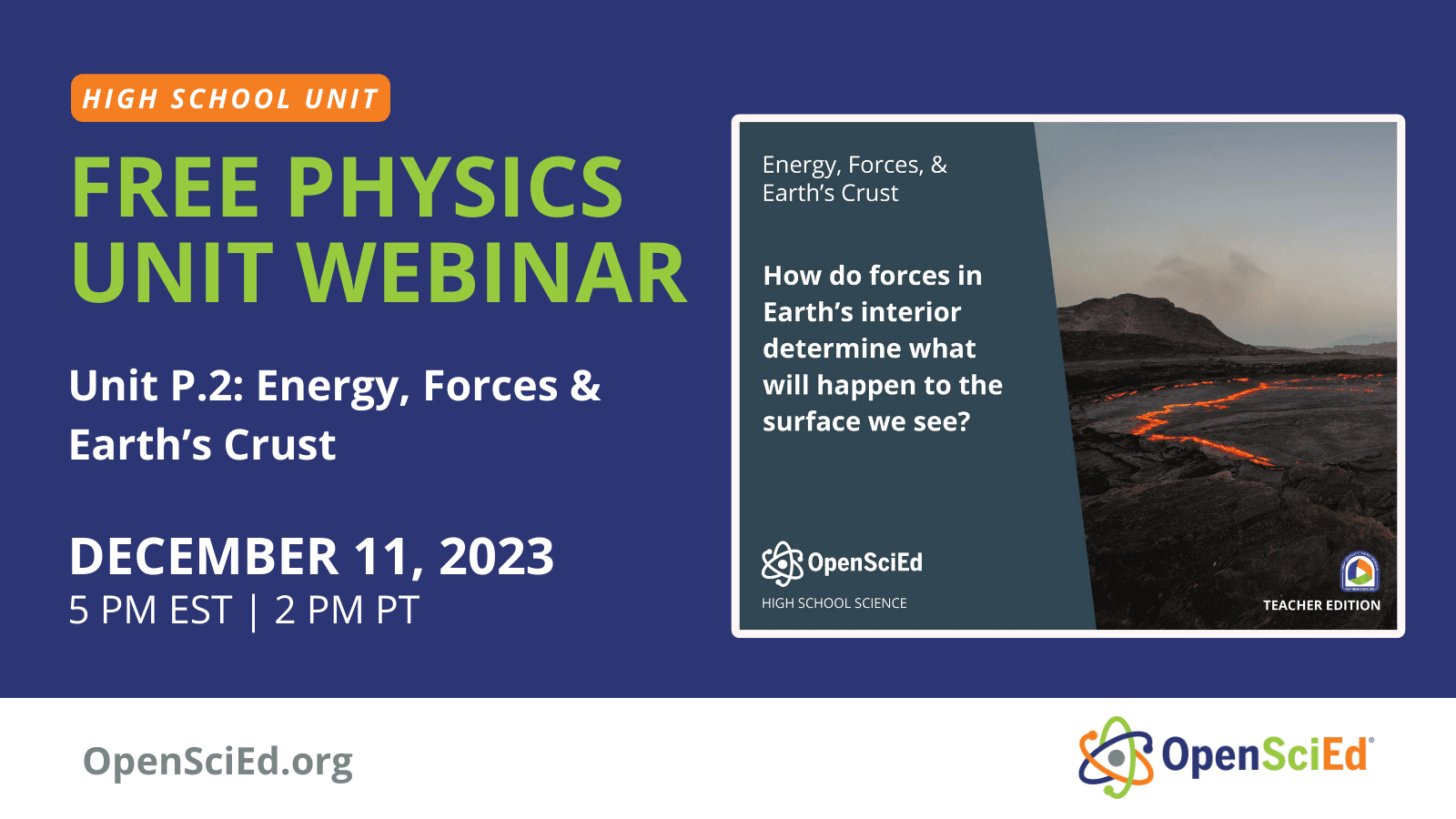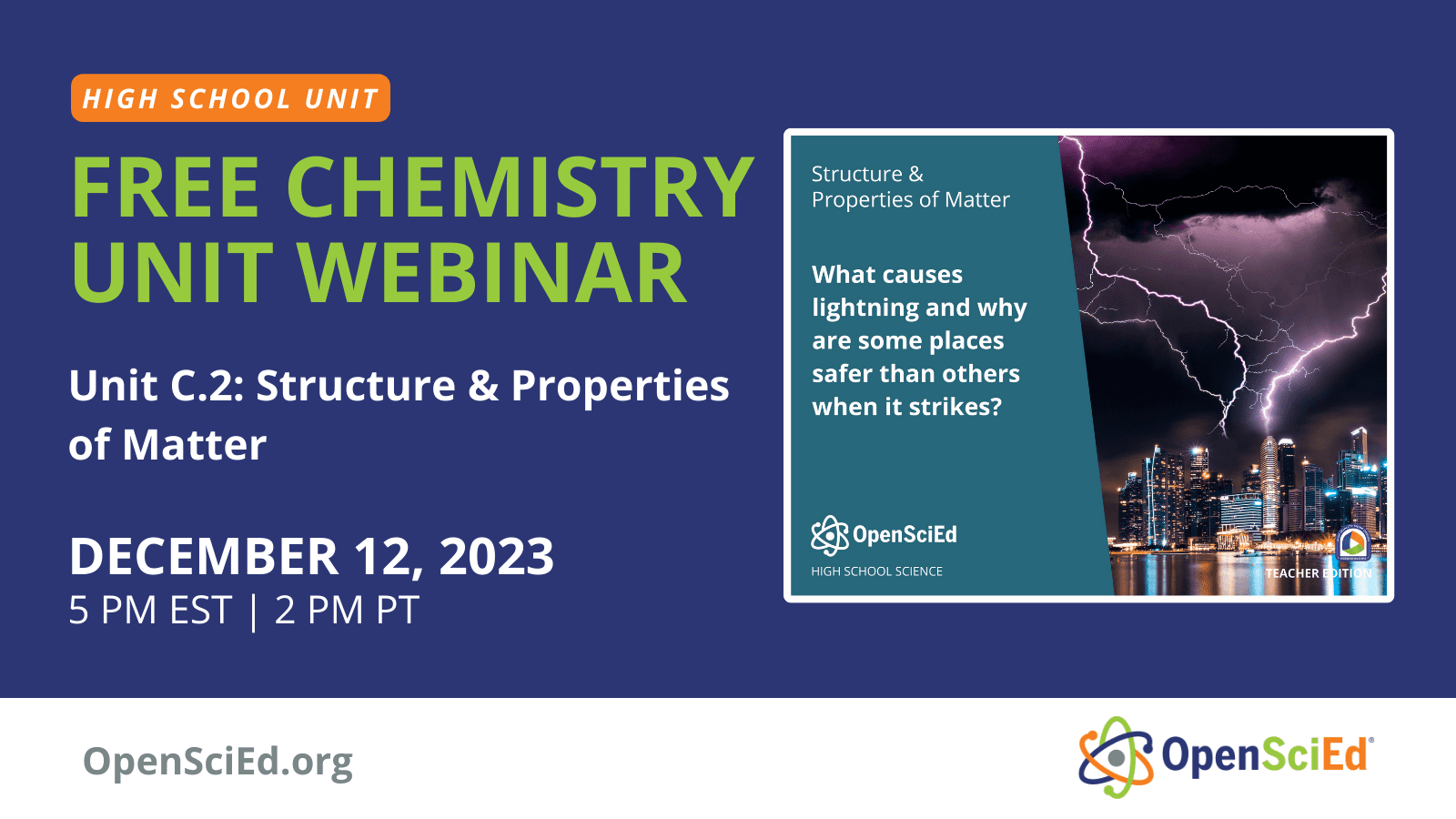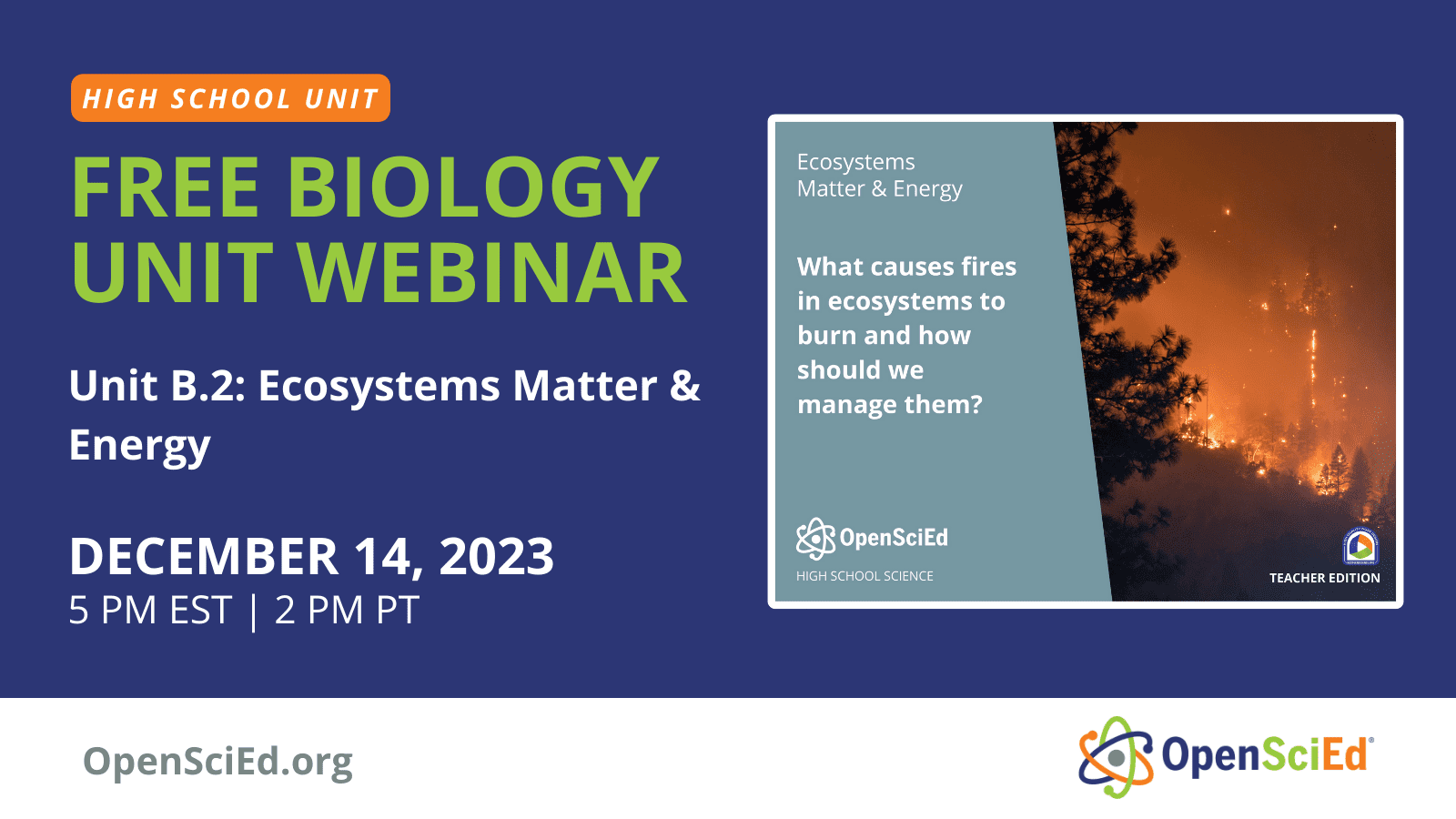#NSTA23 – Questions and Crosscutting Concepts: How Can We Support Students in Asking Good Questions?
OpenSciEdGraphic-FINAL-White-Background-01The Framework requires that students engage in three-dimensional sensemaking around phenomena. In OpenSciEd units, this begins with the anchor lesson, in which students engage with a phenomenon in supported ways before generating the questions that drive the unit. Many teachers wonder how we get students to ask questions that align with the learning goals of […]







